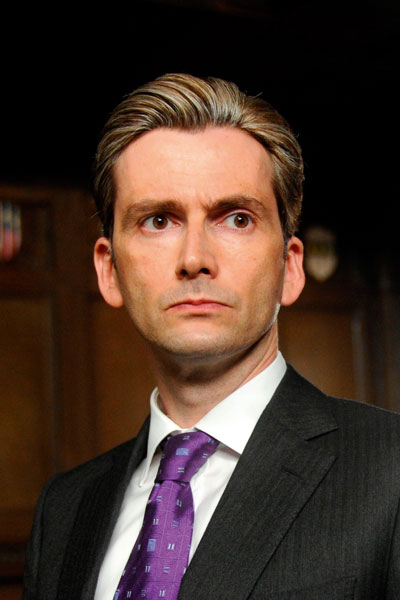There are two American Dreams — the one that happens in real life and is experienced by people such as Barack Obama, and the one that happens on screens, both silver and small, shared by millions across the world.
BBC2’s The United States of Television: America in Primetime (Saturday) traces the history of the latter, focusing on the TV series shown during those magical hours when Americans sit down to dinner after a hard day’s work chasing the former. Only the fittest, finest programmes survive in this slot, where Nielsen ratings mercilessly track the tastes of 300 million people as they chow down and chill out.
For this four-part series, BBC2 has netted a host of big-name interviewees such as the actor Ron Howard (the young Opie in The Andy Griffith Show) and directors David Lynch (Twin Peaks), David Chase (The Sopranos), John Hamm (Mad Men) and James L. Brooks (The Simpsons). This actually creates a problem. The series feels like a Who’s Who of the American TV world, a compendium of shows and names, rather than a proper analysis of its subject.
The stars and directors form a kind of Hollywood huddle, heaping mostly praise on themselves and each other. The BBC presenter Alan Yentob has only a few sentences to say in each episode, so quickly does he have to make room for the likes of Alan Alda of MASH fame, or Gillian Anderson reliving her X-Files zenith. Each episode in the series has a character-based theme, such as ‘The Crusader’ (the heroes and anti-heroes of NYPD Blue, House, etc.) and ‘The Misfit’ (George of Seinfeld, the whole cast of Glee). This adds to its encyclopedic, catalogue-y feel.
At the end of each hour-long episode, the stars and directors usually come to the resounding conclusion that TV shows these days have a harder, more violent edge than those of yesteryear. No way! We’d never have guessed this ourselves.
One odd thing is that the celebrities interviewed seem to believe that programmes today offer a more ‘realistic’ portrayal of life, particularly family life, than before. But surely hard-hitting shows such as The Sopranos and Breaking Bad are as artificial in their own way as the sugary idylls of Leave it to Beaver or The Waltons. How many American families today are actually involved with the Mob or meth?
For a BBC production about American TV, the series misses a golden opportunity to reflect on that special, symbiotic relationship between British and US television. Apart from a few asides from Hugh Laurie about how MASH was shown in the UK without its laugh track, there’s hardly anything on how the two television industries on either side of the pond have fed off each other for decades. Instead, the BBC’s rather sycophantic tribute inadvertently displays the attitude that Britain is somewhat in thrall to American telly. Of course the American TV enterprise is far huger than the British one, like a mothership compared with a small space shuttle. But that doesn’t mean it’s above analysis.
Not a few TV series in America have purloined ideas and at times their entire premise from shows that originated in the UK, Pop Idol and The Office being just two in recent memory. In turn, American television pumps back its influence into British shows, making them bigger, slicker, more Botoxed and caffeinated. You can see this influence everywhere in BBC2’s other new offering, The Politician’s Husband (Thursday). This three-part drama is actually a companion piece to Channel 4’s production The Politician’s Wife, which aired in 1995, and both are written by Paula Milne.
Yet Husband has a darker, sleeker, more urgent feel to it than Wife, though both are about married couples struggling with their political ambitions. What has happened between the two dramas? The adrenaline-filled, cut-and-thrust dialogue of America’s The West Wing, that’s what. The stylisation of Mad Men. The suspense and violence of 24, the bleakness of The Wire. The baleful cynicism of Netflix’s House of Cards (itself borrowed from the UK’s 1990 show of the same name). David Tennant plays Aiden Hoynes, a senior cabinet minster who suddenly finds his career at a standstill while that of his wife Freya (Emily Watson) enjoys a big fillip. Aside from the politicking in the Commons and at home, they also have to deal with their son Noah, who has Asperger’s Syndrome.
Despite the pull of the American political drama, Husband remains British at its core. Tennant adopts the pinched, pallid and paranoid look of all Westminster politicos. Grey-haired and blue-veined, he bears an eerie resemblance to Malcolm Tucker of The Thick of It. He is both brutal and very human in his bid for power. Meanwhile, Watson seems to be a cross between Cherie Blair and Yvette Cooper.
Don’t let that put you off, though. It’s a gripping watch.






Comments